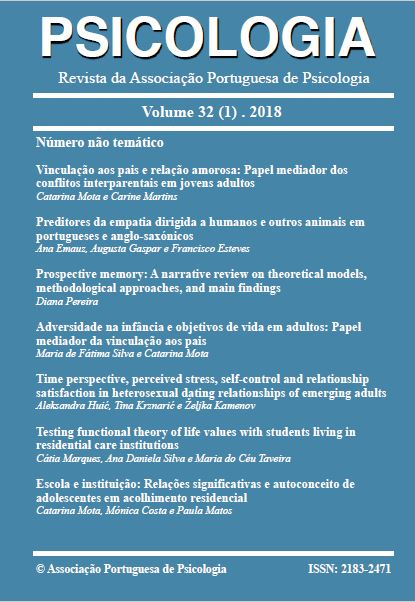Testing functional theory of life values with students living in residential care institutions
DOI:
https://doi.org/10.17575/rpsicol.v32i1.1333Abstract
The Functional Theory of Life Values can constitute a useful theoretical basis for evaluating and promoting the psychosocial development of young people. This study aimed to analyze the adequacy of this theory with students living in residential care institutions. We tested two main hypotheses: a content hypothesis, using a six-dimensional values model (excitement, promotion, existence, supra-personal, interactive, normative), and a structure hypothesis, which represents values in two space dimensions (type of orientation guiding actions goals; and type of motivator expressing needs). Participants included 230 Portuguese youths, 121 boys (52.6%) and 109 girls (47.4%) aged 12 to 25 years old (M = 16.1, SD = 2.03). A demographic questionnaire and the Basic Values Survey were completed. Confirmatory factor analysis and confirmatory multidimensional scaling were used to test the content and structure hypotheses. The results support both hypotheses and provide empirical support to the theory with this population.


